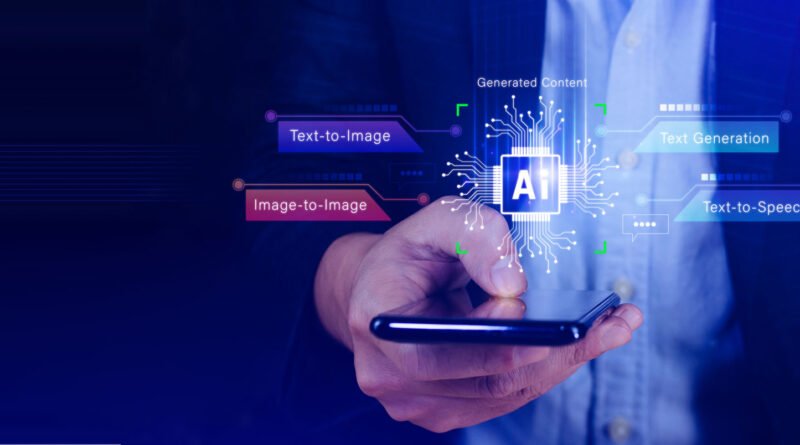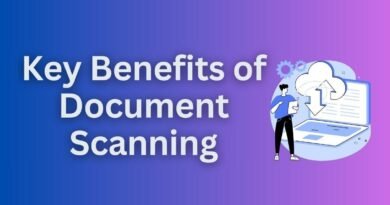How AI Technology is Reshaping the Mobile App Industry
The rapid transformation of the mobile app sector by artificial intelligence (AI) is changing the application development process and improving user experiences. AI technology is becoming increasingly important in mobile app development companies try to satisfy the increasing need for creative and quick solutions. The mobile app sector is being transformed by artificial intelligence, its advantages will be discussed, and future consequences will be examined in this paper.
The Mobile App Development Scene Right Now
From communication to entertainment and productivity, mobile apps have evolved into essential tools for everyday living. The mobile app development sector has changed dramatically as businesses continuously look for means to raise user involvement and happiness. Including artificial intelligence in the creation of mobile apps has become a game-changer since it provides special features and capabilities that improve user experience and utility.
The Role of AI in Mobile App Development
AI technology is being utilized in various ways within mobile app development, including:
- AI systems examine user data in order to offer individualized experiences. Customized interfaces, tailored content recommendations, and adaptive features changing depending on user behavior might all fall under this category.
- Routine chores can be automated by artificial intelligence, which lets apps handle data entry, reminders, and scheduling free from user involvement. Along with saving time, this lessens the possibility of human mistakes.
- AI-driven security elements include behavior analysis and facial recognition to assist guard user information and stop illegal access. In industries like finance and healthcare where data security is critical, these steps are especially important.
- Predictive analytics—by means of massive data analysis—allow artificial intelligence (AI) to forecast user behavior and preferences, therefore guiding developers in their choice of app enhancements and features.
- Natural language processing, or NLP, lets applications conversely understand and answer user inquiries. Chatbots and virtual assistants run on this technology, therefore improving user interaction and support.
Benefits of Integrating AI into Mobile Apps
The integration of AI in mobile app development brings numerous advantages:
- Artificial intelligence improves user experience by means of tailored information and straightforward interfaces. Apps that fit users’ requirements and tastes increase their likelihood of interaction.
- AI-powered features simplify tasks so that apps may complete them faster and more precisely than people could. In a digital environment moving quickly, this efficiency is really vital.
- AI solutions give developers insightful analysis of user behavior, therefore enabling ongoing development and feature optimization of applications.
- Long-term cost reductions for companies can be really large if artificial intelligence automates chores and increases operational efficiency.
The Future of AI in Mobile App Development
The effects of artificial intelligence technology on the mobile app sector could get more noticeable as it develops. These are some forecasts and tendencies for the next years:
1. Increased Individualism
More complex AI algorithms will be developed in response to the demand for tailored experiences. Future mobile apps will be able to learn from user interactions and adjust in real time, therefore offering hyper-personalized experiences that suit particular preferences.
2. Rising Application of Analytics-Driven by AI
Analyzing user data will be mostly dependent on artificial intelligence in order to expose trends and insights. This will help creators to make data-driven decisions, hence improving app functioning and user pleasure.
3. Spread of AI-Powered Attributes
Mobile apps should increasingly contain more creative elements as artificial intelligence develops, like predictive analytics, speech recognition, and sophisticated chatbots. These elements will improve user involvement even further and simplify app interactions.
4. Improved Protection Strategies
As cyberattacks grow, artificial intelligence will be crucial in creating strong security systems for mobile apps. Standard security aspects driven by artificial intelligence will guarantee user data is kept against illegal access.
5. Sync with New Technologies
Other developing technologies such as the Internet of Things (IoT) and augmented reality (AR) will progressively be coupled with artificial intelligence (AI). More interactive and immersive mobile apps will result from this junction.
Challenges in AI Integration
Although adding artificial intelligence into mobile app development has many advantages, there are certain difficulties as well:
- Technical Complexity: AI algorithm development and application call for certain knowledge and experience. Companies could have trouble locating qualified experts to manage this complexity.
- Artificial intelligence depends mostly on data, hence bad-quality data might cause erroneous predictions and unsatisfactory user experiences. Ensuring good data collecting and administration is absolutely vital.
- User privacy and data security issues will keep developing as artificial intelligence used to gather and examine user data. User permission and openness in data use have to be developers’ top priorities.
Conclusion
Unquestionably, artificial intelligence technology is changing the mobile app sector with creative ideas that improve user experiences and simplify app development techniques. The need for mobile app development companies able to include artificial intelligence will keep growing as corporations come to see its worth.
Maintaining ahead of the curve in this fast-changing terrain will need a dedication to implementing AI-driven strategies and seizing the possibilities it brings. Using artificial intelligence can help companies produce better, more intelligent mobile apps that not only satisfy consumer expectations but also establish new industry innovation benchmarks.



